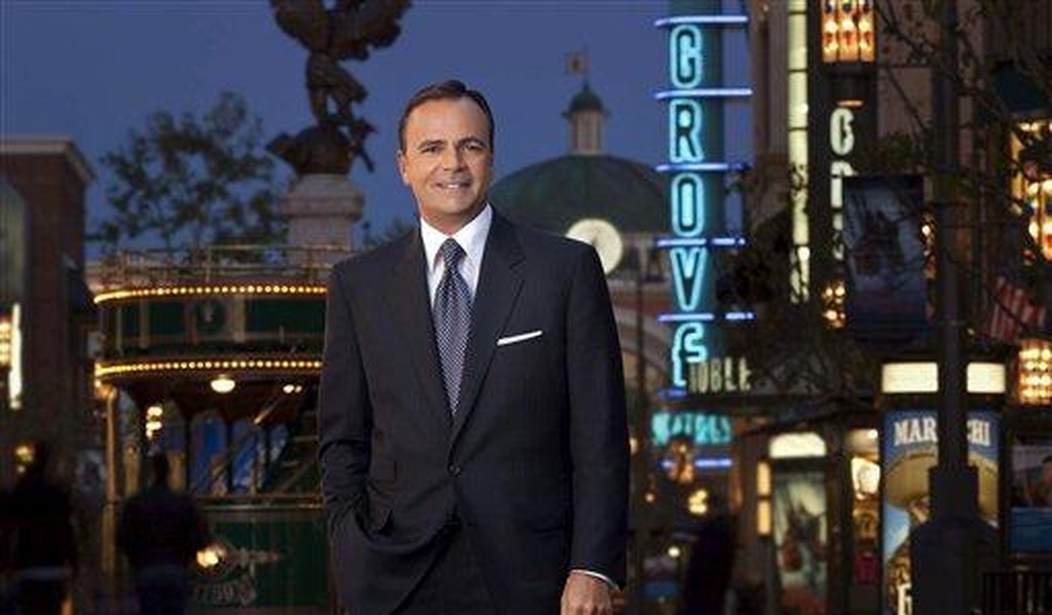The backlash to California Democrats over rampant crime didn’t get limited to San Francisco. Rick Caruso managed to parlay voter anger against the progressive state establishment in Los Angeles into a near-outright win over formerly rising star Rep. Karen Bass in the city’s mayoral primary. Caruso outpolled Bass, and the two will face off in a November runoff:
Democratic U.S. Rep. Karen Bass and billionaire developer Rick Caruso breezed past a large field of rivals looking to be the next mayor of Los Angeles and advanced Tuesday to a runoff election in November.
An early tally of mail-in ballots showed Caruso with 41% and Bass with 38%. A candidate needed to top 50% to avoid a runoff. …
The race largely focused on homelessness and crime. More than 40,000 people live in trash-strewn homeless encampments and rusty RVs, and widely publicized smash-and-grab robberies and home invasions have unsettled residents.
That’s a weak result for Bass, who vaulted to the upper echelons of Democratic Party power when Joe Biden added her to his running-mate shortlist. It’s not as if Bass ran against a highly fractured Democratic field. Putting aside Caruso’s late switch from the GOP for messaging purposes, most of the other initial Democratic candidates dropped out of the race along the way. The most significant challenge to Bass came from former state senate leader Kevin de León, who once ran against Dianne Feinstein, and de León only got 7% of the vote. (So far, anyway; California ballot counting is slow.)
Politico thinks that Bass has a better shot in the general election, but even their numbers reflect the weakness Bass brings as the Democratic establishment candidate:
Caruso managed to capture widespread attention for his tough-on-crime message and vows to “clean up” homeless encampments — two issues California voters are particularly concerned about this year, according to polling.
But the general election in November could prove much tougher for Caruso to crack. A poll conducted by the UC Berkeley Institute of Governmental Studies a week before the primary showed Bass with the support of 38 percent of likely voters, and Caruso at 32 percent.
Public safety and homelessness have dominated the mayoral election. Despite calls in recent years for police reform, rising crime amid the pandemic has dramatically shifted candidates’ tone in the liberal city. Bass received some backlash from progressive Democrats who took issue with her more moderate stances, including a campaign promise to add more police to the streets of Los Angeles.
How well did that progressive stance work out for Chesa Boudin in ultra-progressive San Francisco? Bass’ 38% could well be a ceiling for her in the general runoff, especially if she gets forced more to her left by party activists determined to keep their criminal-justice reform agenda in place. Caruso’s 32% certainly doesn’t look like a floor after the 41% result in the primary; in fact, that clearly renders the UC Berkeley survey suspect on its face. If Caruso only gets 32% against Bass in a one-on-one, how did he win a plurality against Bass in the first round by winning over 40% in an all-in primary?
Jazz and Allahpundit write that Democrats will have to pivot to a law-and-order approach in 2022, but this demonstrates just how difficult that will be. Bass needs to contrast herself from Caruso, who’s clearly striking a nerve, and Bass will have trouble extricating herself from the grip of the progressive Democratic Party establishment. Bernie Sanders and Elizabeth Warren have taken over the national party, a fact made clear by Joe Biden’s cave to the Left as soon as he took office. Bass is one of the progressive vanguard herself, which is why Biden shortlisted Bass for VP — to curry favor with the Sanders/Warren wing.
In a real sense, Bass is the progressive establishment in the Democratic Party, and a flip-flop now won’t do her any good. As Politico notes, she already tried a mild retreat on criminal justice reform and still couldn’t get to 40%. In Los Angeles.
Frankly, all of the potential upside in this race belongs to Caruso. Bass is too well-known at this point in California and Los Angeles to adapt to an electorate angry over the results of her clique’s policies. Caruso is the wild card; he’s the newcomer, the candidate who hasn’t yet been defined by policy choices and dumb positions that have backfired already. That doesn’t mean Caruso can’t blow it, but if he can define himself rapidly before Bass has a chance to do it for him first, Caruso has the most growth opportunity with voters in this election.
As for Democrats in general, the two results from key urban areas in a deep-blue state like California aren’t just a siren. It’s a dam-break alert for a red-wave avalanche coming for their incumbents in suburban and urban districts, likely in every state in the country. Voters are sick of living with high crime rates as well as high inflation rates, and they know damned well who’s to blame for both.
Update: I realized at 1:30 ET that I’d left out the word “runoff” from the headline. D’oh!







Join the conversation as a VIP Member